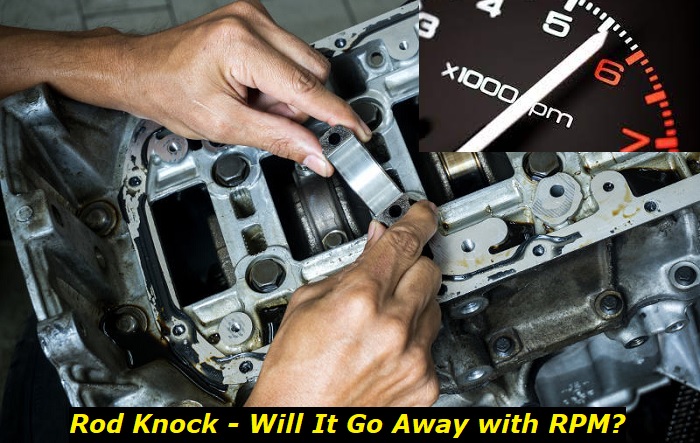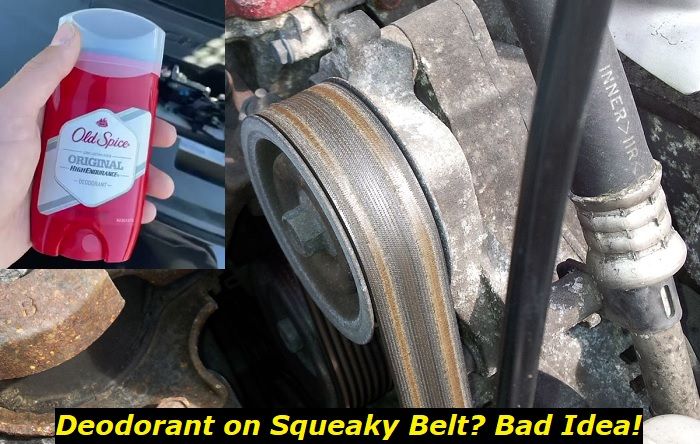The rod knock doesn't go away with your car's RPMs (revolutions per minute) increasing. It rather keeps pace with the RPMs. In other words, the disturbance will get worse. It will become louder and more distinct while driving, with high noticeability during acceleration.
Engine noises highlights
- Level of importance:High
- Commonreasons:All kinds of various problems, hard to list promptly
- DIY inspection:Possible but may be complicated
- DIY repair:Impossible, in most cases
- Price for repair:$150 - $1,000
- Can you drive?Usually, yes
- Ways to fix:Locate the source for the sound and repair the system that needs help

Rod Knock Sound Description
What happens when you hear a knocking sound coming from your engine compartment? First, hope that it's not a rod knock. This is because such noise could mean big and expensive repairs. But the knocking may not be caused by the rod bearings. It could just be a small issue that needs minor fixes.
Signs That Could Mean the Rods are Knocking
The following are pointers that rod knocking may be taking place in your engine bay:
- Clacking, Thumping, or Rapping Sounds
The knocks could sound like rapping, thumping, or clacking-depending on how your ears perceive them. Drivers should be alert for such sounds coming from the engine top. You can suspect that the connecting rods are rubbing against the crankshaft if you hear this.
- Low Oil Pressure
Look out for the oil pressure level in your car as well. The check engine light (CEL) may come on in this situation, meaning that the engine isn't getting enough oil. A diagnosis with a scan tool should help in ascertaining this. You can proceed to top up the oil after.
The rod bearings and rods should have a thin layer of engine oil separating them from the crankshaft. This is what will prevent them from rubbing off on one another metal to metal.
So there'll be increased friction when there's not enough lubrication. And that will result in the bearing spinning out of place and the rod rubbing off on the crankshaft. You'll have to replace the rod bearings once things have gotten to this point.
- Damaged Rods/Rod Bearings
A mechanic can be called to inspect the rods/rod bearings and see if they're damaged or worn out. A replacement will be done for any damaged component.
Helping Your Situation with an Engine Oil Refill or Change
Imagine that you're driving through a lonely route that would be inconvenient and unsafe to get stranded at. And the knocking sound is so bad and scary that you feel the engine could knock if you don't stop the car.
An engine oil refill or change may just make things better and it could be possible to drive to the closest town or repair workshop after. The procedure won't take care of the primary cause of the problem or its mechanical aspect. Although it can assist with low oil pressure which may be worsening the issue.
You may be fortunate to discover that there's a need for an oil top-up or swap. Hopefully, you'd have a gallon of the product in your vehicle for this. Maybe there's a store at a nearby gas station that you could reach within walking distance to buy the oil and filter. It's advisable to swap out the filter as well.
Test your car after the refill or change to see if the procedure made the sound less serious. If so, then the rods have been stabilized temporarily. Quickly drive to the nearest repairer if things get better.
DON'T DRIVE the vehicle if the top-up didn't have an effect on the rods positively. Proceed to call a tow service or find a way out of that spot if there's no network service.
An internal engine job will still be required after the oil has been poured in and your car seems drivable. But the work won't be one that you can do on your own (DIY) or at the present location. Drive away to get professional attention ASAP!
Your safest bet is always to call a tow service no matter the results. This is regardless of whether you refilled the oil and the vehicle feels safe to use or not. You'd be taking a great risk if you keep driving the vehicle when you notice the knocking sound. A rod could get thrown, resulting in a blown engine.
Changing the Engine Oil Safely
Only perform an oil replacement if you have two jacks for securely lifting your car's sides (left and right). It's best not to risk doing the procedure with only one jack as a support, even if it's a crocodile/alligator jack.
Oil swaps are easier and safer to do at home or in auto repair shops. This is because you'd be able to make use of ramps, lifts, or grease/vehicle inspection pits. But remember to wedge your car's rear wheels with chocks, so the vehicle doesn't roll from its position. This is very important for your safety!
Note: An oil change might fix other kinds of sounds like the lifter tick.
Checking the Engine Physically for Causes of Rod Knock
You'd have to stop and park the car to do this. Open the hood and put on the engine, so that the system can make the sounds. The knocks will be more distinct or clear at this point and they may be rhythmic.
Your car might be experiencing a different issue instead; such as the piston slap or lifter tick. That's if you realize the sound isn't coming from the engine's top.
1) Checks by a Mechanic
- Heat Damage and Looseness
A mechanic will check the rod bearings for signs of heat damage as a result of the rods rubbing on the crankshaft. He or she will also take a look at the rod bearing or rod to detect looseness.
- Metal Pieces in Engine Oil
The expert will also drain the oil and examine it for pieces of metal. They will be rod bearing fragments and you can identify them by their shimmery appearance. That's another proof of the bearings knocking on the crankshaft.
- Oil Leaks
The auto repairer must investigate why the rod bearings and crankshaft weren't being adequately lubricated. The bearings might not be fitted well or there might be an oil leak at a point in the fuel line.
- Dirty Fuel-Injection System
A fuel-injection system cleaning process may be recommended, especially when shimmery metallic fragments were discovered after draining the oil. Fuel injector cleaners are solvents that can get rid of grime in the fuel lines of your car. They work by dissolving the grime.
- Defective Knock Sensor
You may be lucky to have a car that's equipped with a knock sensor that detects rod knocks. It's a little unit that's located in or around the engine. You may find it underneath the intake manifold. It takes notice of the knocking sound and sends signals to the engine control unit (ECU).
This sensor could go bad and it won't be able to interact with the ECU. So there'll be no knocking alert except for your ears picking up the sound. Thankfully, a defective knock sensor will trigger a CEL alert. The knocking sensor's signals will cause the motor to be partially shut down so damage can be minimized.
2) Replacing the Whole Engine
You may need to replace the whole engine depending on the level of damage to its components. But a few repairs may be required in the case of minor issues. And repairing is less expensive than swapping out the whole unit, of course.
Get $800-$2,000 ready for engine replacement labor costs and $4,000-$10,000 for a new engine. It all depends on the engine type. Read further to see the estimated costs of repairs and smaller replacements.
What Can Produce Vehicle Sounds Similar To Rod Knocking?
The following can make you mistake the noise you're hearing for a rod knock sound:
- Ticking/sticking valves or ticking valve
- Bad exhaust leak
- Bad main crankshaft bearings
- Worn water pump bearing
- Broken/loose timing belt tensioner pulley
- Defective air conditioning (AC) compressor
- Broken/cracked flywheel or flex-plate
- Carbon deposits on the piston
- Wrong engine timing
- Worn alternator rotor bearings
Conclusion
It can cost you $2,000-$7,500 to find a permanent solution to the rod knock. This estimate is based on the cause of the knocking rods. For example, whether you need to change the entire crankshaft or just the rod bearings. Take the costs of labor and replacement components into consideration as well.
Still, fixing rod knocks often includes extensive engine fixes that can take more than half a day (15 hours) or at least 8 hours. Just know that it will be better to get the repairs done as early as possible. Maybe you'll be able to avoid additional damage or the need for extra fixes.
About the authors
The CarAraC research team is composed of seasoned auto mechanics and automotive industry professionals, including individuals with advanced degrees and certifications in their field. Our team members boast prestigious credentials, reflecting their extensive knowledge and skills. These qualifications include: IMI: Institute of the Motor Industry, ASE-Certified Master Automobile Technicians; Coventry University, Graduate of MA in Automotive Journalism; Politecnico di Torino, Italy, MS Automotive Engineering; Ss. Cyril and Methodius University in Skopje, Mechanical University in Skopje; TOC Automotive College; DHA Suffa University, Department of Mechanical Engineering






Add comment